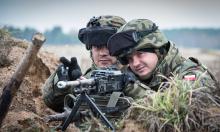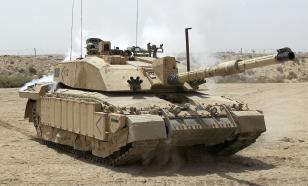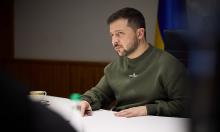Ursula von der Leyen's program to turn EU into defensive union
On July 18, the European Parliament is to vote to approve Ursula von der Leyen as head of the European Commission for another term. In her program, Von Der Leyen proposed developing pan-European defense programs and introducing the post of European Commissioner for Defense.
If re-elected as head of the European Commission for a second term, Ursula von der Leyen intends to strengthen the defense industry of the bloc, as well as introduce the post of European Commissioner for Defense, Reuters and Bloomberg report with reference to her election program until 2029.
In addition, Von Der Leyen plans to prepare a new document on the future of European defense within the first 100 days after re-election.
"Our work over the next five years will focus on creating a true European defense union,” the document says.
Ursula von der Leyen also suggests:
- increase the number of European Border and Coast Guard officers threefold to 30,000;
- develop new pan-European defense projects such as the European Air Shield and cyber defense projects;
- appoint a commissioner for the Mediterranean to address issues of economic stability, energy, security and migration;
- instruct the Commissioner for Equality to develop a new LGBT+ strategy (the international LGBT movement is considered extremist and banned in Russia) and a new plan to combat racism;
- provide access to new, dedicated supercomputing capacity for startups and AI industries through the AI Factories initiative;
- create a subcommittee that will deal with housing issues and put forward the first affordable housing plan in European history.
According to Bloomberg, Ursula von der Leyen's election program is largely aimed at the "greens” and will most likely let her be re-elected.
Against the backdrop of ongoing hostilities in Ukraine, the EU began developing a new European Defense Industrial Strategy (EDIS) back in 2023. Von der Leyen named four main points of the strategy:
- spend more,
- spend smarter (increase joint purchases),
- spend "European” (invest European taxpayers' money)
- and use the experience of the conflict in Ukraine to "outsmart Russia on the battlefield.”
At the same time, the head of the EC has repeatedly said that Moscow was "waging war” not only against Kyiv, but also against the European economy, energy and values.
Against the backdrop of the crisis in Ukraine, NATO countries agreed on new defense plans that include the creation of up to 50 additional brigades to defend against Russia. Moscow regards the advance of NATO infrastructure to its borders as a threat to Russia's security. President Vladimir Putin said that Moscow has "no reason, no interest: no geopolitical interest, no economic, no political, no military” to fight with the countries of the bloc.
Subscribe to Pravda.Ru Telegram channel, Facebook, RSS!




